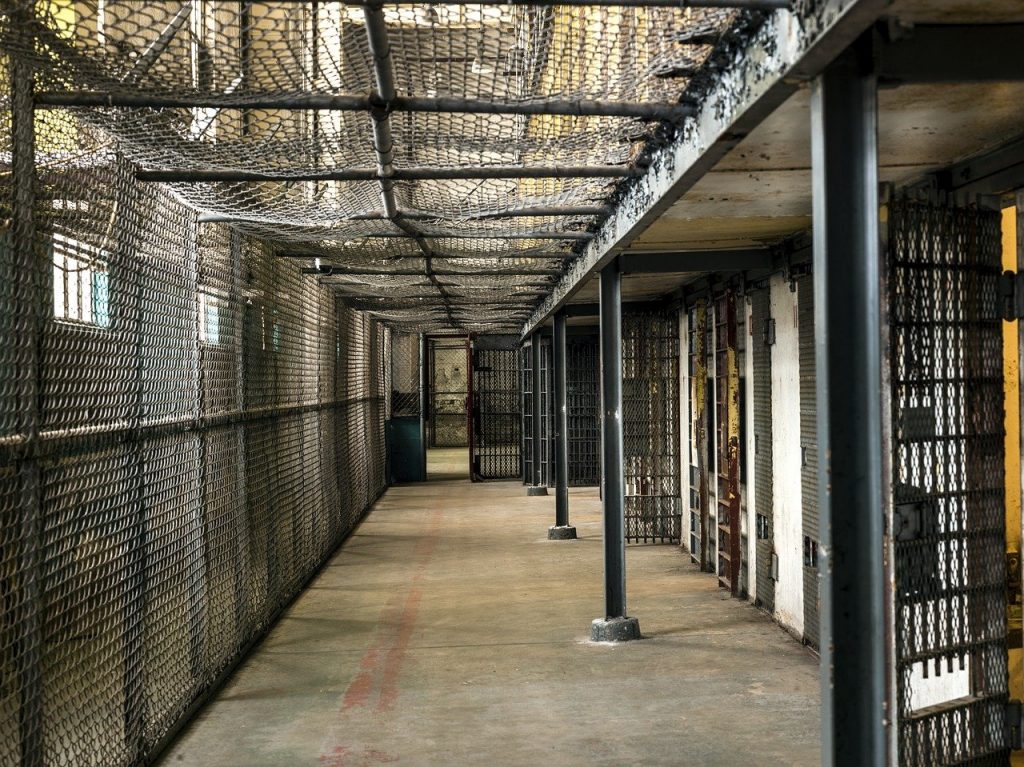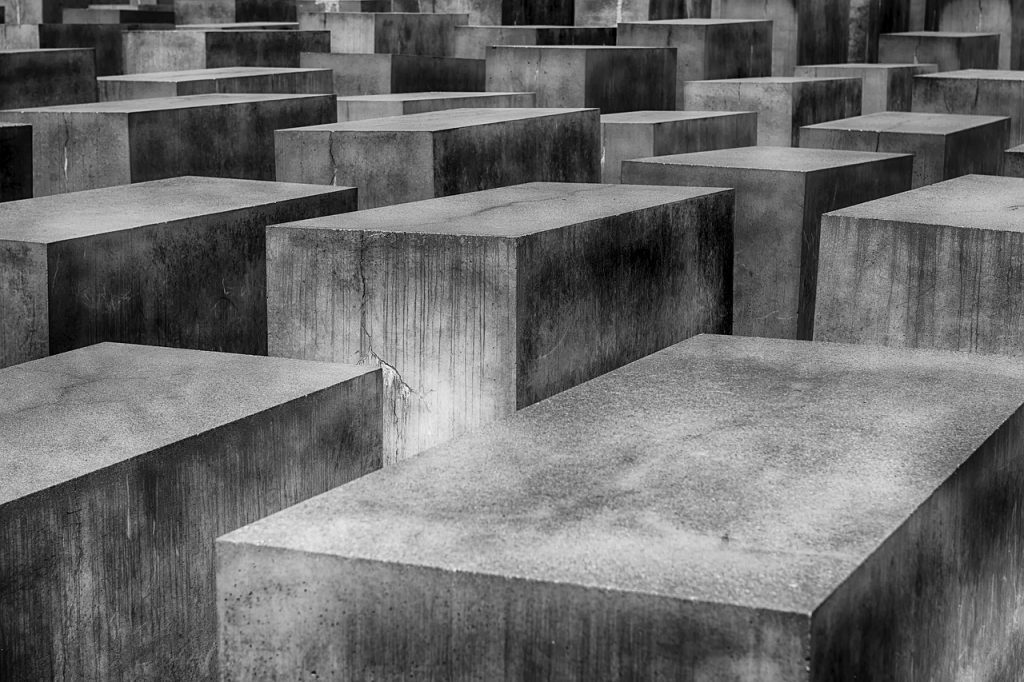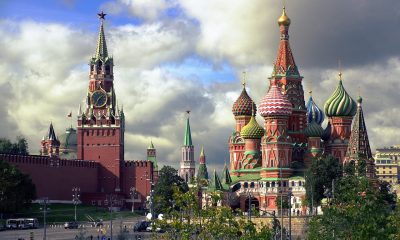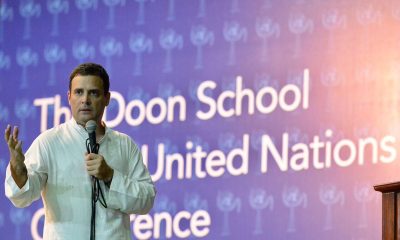
Traditionally, security is viewed through military approach. Indeed, it does make sense. The 20th century is known for its ideological rivalry between two superpowers. Since nuclear confrontation represented a potential threat to peace, security notion was dominated by military factors. The central countries pursued its own interests, including the exploitation of the countries on the periphery for its own benefits. However, if we take current international, this traditional approach seems to be one-sided.
Yet, back in 90s, Buzan suggested that international security of the new century would be much “less dominated by military and political issues” (p. 433). Why so? Because there was no more Soviet Union, no arms race: it gave a way to other aspects of security.
Military threat has always been seen as special category, since it involves the use of force. The threat is posed by the military power of other states. It can impair the basic ability of the state to protect its people.
Nuclear powers, in this sense, pose an immense military threat to any country (particularly to nuclear-free). That is why the idea of nuclear non-proliferation is very attractive; it has wide support all over the world. Regardless, there was not much progress among the superpowers towards their own nuclear disarmament since the massive reduction in nuclear and strategic forces after the end of the Cold War. Conversely, for the last decade Russia has been strengthening its nuclear power. Similar calls have been recently made by the newly-elected president of the United States. Donald Trump suggested that America should expand its nuclear weapons program, thus, pursue peace through threat. As far back as in 90s, Buzan pointed out that the success or failure to reach nuclear-free world would greatly influence security and military relations (p. 443). The ambitions of North Korea show that not every country is ready to give up the ability to develop its nuclear arsenals. So, nuclear zero remains rather hard to achieve and nuclear threat persists.
However, as mentioned before, today’s security is not just about military threat (although it is significant). The world we live in is multi-polar, all of us are interconnected. Let’s say we live in a country, free from nuclear threat. Are we still secured from economic collapses or from the influence of climate change?
Economic Security
Economic security is about access to resources, finances and markets that are necessary to maintain political power and the high level of living. It is threatened when national economic system is weak. In this sense, developed countries are trying to maintain their standard of living, and developing countries are doing what they can to improve their own. In this environment international competition is quite strong. That is why strong nations may economically leverage weaker opponents in order to prevail militarily and technologically and achieve its political goals.
Meanwhile, economic threats are hard to identify because of its nature. For example, the recent economic crisis could be a good example. What should be tackled first has been debated for a long time. Now experts, researchers and politicians are arguing what should be done in order to prevent another economic blast. The economic sector clearly shows how different aspects interact with each other.
Moreover, economic and military security is interconnected. For instance, military budget can be constrained, limited or cut due to economic reasons. Furthermore, in the current framework of mutual economic interdependence and accelerated international trade, economic security might become the most significant one. If a state has more powerful economic security, it is easier to maintain other aspects of security. Vice versa, if a state has poor economy, it is hard to keep the national security strong, thus such a state may be leveraged.
Environmental Security
Here the threat is posed by disruption of ecosystem and scarce recourses. Nowadays protection of environment plays a significant role in security agenda. In this sense, the recent Paris Agreement (2015) can be viewed as an attempt to strengthen countries’ security against the overwhelming “conditions that can threaten human existence on a large scale” (Buzan 1991, p. 450). A comprehensive climate policy, apart from the main goals to mitigate the effects of climate change, also addresses adaptation mechanisms to deal with loss and damage caused by global warming (See the Paris Agreement 2015).
The desire to maintain climate may give additional reasons for powerful developed countries to intervene in less developed countries under the name of environmental security. The relations between countries would be affected if the effects of climate change deepened. Natural disasters may inevitable become a driving force for human migration and this, in turn, would change the balance of power in the future.
Global warming threatens not just the way the people lead their lives, but the mere existence of humanity and the planet Earth. Diminishing capabilities of ozone layer to protect the planet can cause floods and fires, eliminate forests and plankton, ultimately causing countries to adapt and deal with the environmental issues in order to protect their state. Sussane Droge from the German Institute for International and Security Affairs points out that current interest in efficient climate policy is fueled by the obvious energy benefits (2016, p. 32). It means greater security and technological progress.
Political Security
Political security concerns the stability of political systems and organizational stability of the state. If this aspect is weakened, it shutters the state as an entity. That is why it can be considered as important as military security. Here the state sovereignty is usually threatened.
The Human Development Report of 1994 places political security as one of the main categories of threats to human security (UNDP 1994, p. 25). Paradoxically, political sector is one of the most challenging. All threats can be viewed as political (See Jahn, Lemaitre & Waever 1987). So, for instance, under economic security, it is usually meant political-economic security, under military one – military-political security and so on.
However, the sector exists and usually consists of political threats. Buzan (1983) describes them as “pressuring the government on a particular policy, overthrowing the government, and disrupting the political fabric of the state” (p. 118), they aim to destabilize the government system and make it easy to perform a military attack.
The national identity and its ideology are a target of political threats. Interestingly, that new changes of the Russian military doctrine recognizes the rising of ideological clashes. They are carefully called “the competition of values and development models” (See “the Military Doctrine of the Russian Federation”). Such a statement admits ideological competitions and, consequently, reflects the difference of values between Russia and other countries.
All of aforementioned sectors are interlinked and have importance of their own. So when approaching international and national security, one must take them into account. So if we talk about survival of the state now, it depends not so much on military factors but as on the whole complex of factors (political, military, economic, and environmental). Theoretically speaking, if we are free from military threat, it does not mean that we are secured in other ways. The notion of security is way broader than just military approach.
References
Buzan, B. (1983). People, States and Fear: The National Security Problem in International Relations. Hertfordshire: Harvester Wheatsheaf.
Buzan, B. (1991). “New Patterns of Global Security in the Twenty-First Century”, International Affairs (Royal Institute of International Affairs 1944), 63:3, 431-451.
Droge, S. (2016). The Paris Agreement 2015 Turning Point for the International Climate Regime. Retrieved from <https://www.files.ethz.ch/isn/196211/2016RP04_dge.pdf> on 27/12/16.
Jahn, E., Lemaitre, P., & Waever, O. (1987) European Security: Problems of Research on Non-Military Aspects. Copenhagen: Centre for Peace and Conflict Research.
“The Military Doctrine of the Russian Federation”. Approved by the President of the Russian Federation on February 5, 2010, Decree №146 (Edited in 2014). Retrieved from <http://kremlin.ru/supplement/461> on 02/01/2017.
UNDP (United Nations Development Programme). (1994). Human Development Report. Retrieved from <http://hdr.undp.org/sites/default/files/reports/255/hdr_1994_en_complete_nostats.pdf> on 03/01/2017.
UNFCCC (United Nations Framework Convention on Climate Change). (2015). The Paris Agreement. Retrieved from <http://unfccc.int/files/essential_background/convention/application/pdf/english_paris_agreement.pdf> on 26/12/16.
China
Nepal Hindu Rashtra: Time to Wrap Up Communism?

Nepal abolished the Constitutional Monarchy in May 2008 and declared itself as a Federal Democratic Republic. There was a new hope in Nepal as it was becoming world’s newest democracy even though it had dissolved the Hindu Rashtra. However, the democracy in Nepal immediately got into the tight grips of leftists and communists backed by China. It has been almost 12 years since monarchy was abolished in Nepal. Interestingly, the Himalayan country has already seen 11 Prime Ministers in this period. Thus, leaving the Nepalese people still yearning for good and stable governance.
Re-establish Hindu Rashtra
As the political instability is growing in Nepal, people are demonstrating concerns about the future of the country. In fact, Nepalese citizens are unhappy with frequent interference by China and India influencing its unstable communist regime. More voices are now growing in support of reinstating the Monarchy and declaring Nepal as world’s only Hindu Rashtra (which by default offers full religious freedom to other religious minorities as per Hindutva concept of Sarva Dharma Sama Bhava – all paths lead to one).
Former Deputy Prime Minister of Nepal, Kamal Thapa said that if political parties do not recognize the seriousness of reinstating the monarchy, then the country will head for a period of darkness. “Recently, we’ve had high-ranking officials from India and China come to Nepal to try and solve problems within the ruling party,” he said. “We cannot let others dictate what we want to do.”
Communist Party All Set to Suppress Protests, By Force
Kamal Thapa has firmly demanded an all party meet to discuss reinstating of monarchy. Throughout the month of December, 2020 Nepal has seen anti communism protests across the country in support of reinstating the monarchy and Hindu Rashtra. Most importantly, the demand has become a nationwide mass people’s movement. So much so that the communist regime had to send a directive to 77 districts in 7 provinces. The directive suggests suppressing the protests by force. Nevertheless, Rashtriya Prajatantra Party and other royalist groups have ignored this threat from the communist regime. Protester groups have pledged to strengthen the protest in the coming weeks.
Nepal: Demonstration held in capital Kathmandu, demanding restoration of monarchy in the country. pic.twitter.com/TFjmKu9U9Z
— ANI (@ANI) December 5, 2020
Role of China – Hope for Communism in Nepal
China’s ambassador to Nepal is known to have very close relationship with Nepalese Communist regime. In fact, She has been super effective in tilting Nepal’s posture towards its ideological partner, China. One of her greatest achievements in 2020 was artificially manufacturing a border conflict between Nepal and India. Consequently, souring relations between the two Hindu majority nations. In addition, she managed to silence Nepal’s communist government after China took one of Nepal’s border villages under its control. However, recent political turmoil in Nepal and a renewed demand for reinstating of Hindu Monarchy is showing that the situation is now out of Chinese hands
Role of India
Year 2020, was not a good year for India and Nepal relations. India was busy in controlling domestic Covid cases. On the other hand, China had launched an invasive campaign into Indian territory. In addition, India is always busy with Pakistan on its western borders. However, the surprise came to India when China was almost successful in creating a new border tension between India and Nepal.
Those who do not know about Indian government should note that the current ruling party in India finds itself ideologically opposite to communism. This further creates differences between the two countries.
Communist party in Nepal has blamed India for supporting the ongoing anti communism protests in Nepal. However, former advisor to Nepal’s PM has suggested there is no proof that India is fueling pro Monarchy, anti communism demand in Nepal.
Nevertheless, There are certain influencers in India who have, in their personal capacity, expressed support for reinstating the Hindu monarchy. Yogi Adityanath, who is the Chief Minister of an Indian state bordering Nepal, said in 2015 that Nepal should declare itself a Hindu Monarchy. Readers should note that in 2015 Yogi Adityanath was not the Chief Minister yet. However, today he is not only popular in south of Nepal, his popularity is growing in Nepal as well.
Will The World See the first Hindu Rashtra?
It is difficult to answer this question at this moment. However, Nepalese communist government could not resolve the political instability and in December 2020 Nepalese government dissolved the parliament. Nepal will see next elections in April – May 2021. Hopefully, the world will see Nepal’s 12th Prime Minister in 13 years or may be a Hindu King? Royalists and protester groups have expressed confidence in winning next elections. We have our eyes on Nepal for updates.
Opinion
America’s Justice System – The Need For Reform

A recent poll by the National Opinion Research Centre revealed that 95% of Americans favour vital criminal justice reforms. This is hardly surprising, given that several people of varying racial, partisan and ideological dispositions have called out the justice system over its many failures throughout the years. Most Americans received the Trump Administration’s First Step Act as a step in the right direction, as about 60% of people approved the criminal justice reform bill according to a 2018 poll. However, many people still believe the justice system’s approach to crime is ineffective and needs dire change, and these are some reasons why.
Prison population and funding concerns
Research conducted revealed America has about 2.3 million prisoners, making the US the country with the highest incarceration rate globally. Experts estimate that the country’s prison population has grown by a whopping 340% over the past three decades; new prisoner admissions into jails are higher than prisoner release numbers. The cost of maintaining the nation’s prisons at taxpayers’ expense has inspired a lot of backlash and calls for budget cuts. According to research, slashed correction spending was the preferred option by most states to balance their budgets and redirect spending to other areas.
Minimum mandatory sentences
Minimum mandatory sentences are statutes that force judges to give defendants convicted of a crime the minimum prison sentence. Mandatory sentences rob judges of the traditional way of considering the defendant’s character and the unique circumstances surrounding offences. Even when represented by criminal defense attorneys with many years’ experience, defendants often succumb to prosecutors’ pressure to plead guilty or face more severe charges with higher mandatory sentences. The guilty plea bargain consequently resolves about 95% of both federal and state court cases. Research also shows that about half of inmates in federal prisons are doing time for drug offences- causing overpopulation in the prison system.
Growing number of people killed by the police
An estimated 1000 civilians are killed by police officers annually in the US. The frequency of police brutality cases over the years requires immediate reform to the American justice system. Data suggests that the incidence of fatal police shootings is higher among African-Americans than any other ethnicity, inspiring movements like the ‘Black Lives Matter’ campaign to press on with protests for significant police etiquette reforms towards coloured minorities. The police force faces incessant accusations of racial profiling, indiscriminate use of power, and poor discretion, which has led a reported 58% of Americans to think policing needs major reforms through measures like better-trained officers, and wearing body cameras.
Evolving public opinion on crime
Research released by the Sentencing Project and The Justice Policy Institute reveals that more people in conservative states are embracing preventive, rehabilitative, and alternative sentencing options for non-violent offenders. Most Americans now view the prevention of crime as the most vital function of the justice system, as 77% of Americans think that focusing more on character education and after-school programs would be cost-effective by reducing the number of people going to jail. Almost two-thirds of Americans also believe in the need for lighter sentences with more useful, reformative programs in prisons that will benefit inmates upon release. Therefore, support for harsh penalties that harden criminals and make them a more significant menace when reintroduced into society has dwindled.
Opinion
The History Question: Is It Better to Remember or to Forget?

Years ago, a philosopher by the name of George Santayana said a phrase that fuels many debates to this day. His original saying is “those who cannot remember the past are condemned to repeat it”, although, many sources now present it as variations of “those who cannot learn from history are doomed to repeat it”. The latter definitely has more substance to it in the light of the ongoing debate about how much history we should be learning and how.
Is It Better to Remember or Forget About the Past?
On one hand, Santayana was right. Learning about the past is essential in order for people to progress. One also shouldn’t overlook the importance of remembrance and paying respects to the dead, both those who pushed the progress forward and those who have fallen victims to major tragedies that could and should have been averted.
The main argument in favor of learning about the past is that its knowledge is necessary for preventing the same thing happening in the future. Having it one can see the signs and stop the tragedy before it gains momentum.
That’s sound in theory, but the reality is always different. For example, today people are surely forgetting, and the much-critiqued education system is only partially at fault here. Even the greatest of tragedies weren’t spared this fate. It’s a proven fact that about two-thirds of millennials today don’t know about the Holocaust, and this number is surely greater for generations that follow them. In the school history course, the subject of one of the greatest disasters in history is barely touched, if touched at all. And outside of a history classroom, one can only see small, but terrifying, glimpses of it at the Holocaust Museum and other museums that rarely attract many visitors. And now we are witnessing a rise of antisemitic crime.
Are these two facts related? Does the lack of awareness about the horrors done in the name of Aryan supremacy contribute to the fact that right-winged extremists seem to be gaining popularity again?
It does, but by how much? That is the question that no one can truly answer.
And what about other genocides? The Holocaust had the highest death toll, but it was far from the only genocide in history. And quite a few of those happened after World War 2 and before the memory of the atrocities against the Jews began to fade. This means that while forgetting history is a factor, it’s not the deciding factor in its repeats.
But what is that thing responsible for the reenactment of past mistakes and tragedies?
Learning. This is the important thing that is most often overlooked when citing Santayana’s famous saying. It’s not enough to learn about the past and know the facts of things that happened. It’s important to learn from those facts and put in place protections that will prevent them from happening again. And this is something that humanity, as a whole, has yet to succeed in doing.
Dwelling in the Past Can Be Just As Bad
One also shouldn’t forget that there is such a thing as “too much history”. The Bosnian War and genocide that happened there in the 1990s is a vivid example of how the past can be exploited by political powers. Used as a part of propaganda, which fueled the war, history can become a weapon in the hands of those who want to use it for their own goals.
And this is what humans have been doing since the dawn of time. There is always someone who will use any means necessary to achieve whatever it is they wish. This results in wars and genocides, and hundreds of smaller but no less devastating tragedies.
Therefore, the problem isn’t whether people should be learning history but human nature itself. Perhaps, teaching this can help fix this fundamental flaw and truly stop the worst of the past from repeating.
-

 Travel12 months ago
Travel12 months agoImmerse Yourself in Nature: Explore Forest Bathing with a New Guidebook
-

 Technology12 months ago
Technology12 months agoHow Virtual Fly Elevates the World of Flight Simulators
-

 Europe12 months ago
Europe12 months agoBarcelona and Athens: cities that will leave an everlasting impression
-

 Health12 months ago
Health12 months agoExperience in clinical quality: What is it, and why is it important?
-

 Travel8 months ago
Travel8 months agoEnjoy a luxury holiday in Zanzibar
-

 Business8 months ago
Business8 months agoServiceNow Development Consultancy: Business Process Automation as Disruptive Technology
-

 Culture and Lifestyle8 months ago
Culture and Lifestyle8 months agoDo you want to surprise a special someone?
-

 Environment8 months ago
Environment8 months agoThe Future of Fashion: The Rise of Eco-Conscious Brands in the Luxury Market













